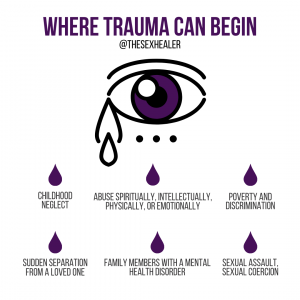What is Trauma? Introducing the Trauma Meaning
What is Trauma? Introducing the Trauma Meaning.
There is so much debate as to what to include and exclude in the trauma meaning.
Trauma. Ugh.
Throughout history, the trauma meaning specifically centered around serving those in the armed services, firefighters, war veterans, police officers, and first responders experiencing symptoms after exposure to one event.
The natural progression for trauma connected to symptoms after one event began to expand and connect to those individuals who have experienced physical abuse, domestic violence, and / or sexual violence.
Those individuals who are exposed to a threatening or disturbing event or series of events that have lasting distressing mental or emotional responses, causing the individual to feel overwhelmed in their ability to cope and integrate into their current life experience is what we define as the most broad “trauma meaning.”

This quickly didn’t serve individuals experiencing trauma though, because more seemed to be happening. Why was it that two people who experienced the same event could each process this event differently – where one may have experienced it as a trauma, the other may not.
After 10 years of being a trauma therapist, I realize the massive amounts of individuals experiencing varying levels of trauma that this PTSD trauma meaning has left out.
Trauma as only from the perspective of the individual is not an trauma-focused approach to therapy.
We must consider the effects that come from our societal beliefs, systemic impacts, and cultural constructs, so you can begin to notice what I see becoming a public health issue.
The Progression of Our Understanding of Trauma
Initially, the definition focused on the individual and how the individual experienced the traumatic event. Similarly, the trauma meaning had to do with a specific event or events (like those listed above).
Massive research has been under way for the last fifty or so years, identifying that symptoms related to trauma is more about the way our brain responds to various events or experiences over time.
These experiences shape individuals and families and can reverberate through the family system into other relationships throughout the course of people’s lives, even if they were not direct experiencers of the trauma.
Trauma effects are intergenerational.
These dynamics can unconsciously continue from generation to generation, until one or more people decide to make the change.
We now are able to see that trauma is relational, it does not exist in a vacuum affecting only one person. The trauma meaning has to include the ripple effect across that individual’s world.
In my practice, I see that the massive impact of trauma on individuals, families, friendships, and their romantic relationships.
Confronting these realities and having insight to them allows for opportunities for growth and healing.
You can get more free content on relationship and sex tips by checking out my Youtube Channel – The Sex Healer.
If you know someone that would benefit from this information, feel free to share it.

Life Coaching and Therapy (LCAT) is a relationship coaching and sex therapy practice that transforms our clients lives through our flexible, multi-technique approach and pleasure-skills training provided by systemically-trained and licensed therapists!
Our team of compassionate, licensed therapists and certified sex therapists help Millennials and Baby Boomers alike who visit us for a variety of relationship, intimacy and sex problems.
LCAT provides on-site appointments, as well as video chat and text therapy programs. For clients hoping to take their intimate lives to the next level through personalized coaching on YOUR terms, learn more about our Text Therapy Program.
Learn more about how LCAT can help improve your life at What We Do.
Call or text us at 203-733-9600 or make an appointment.






